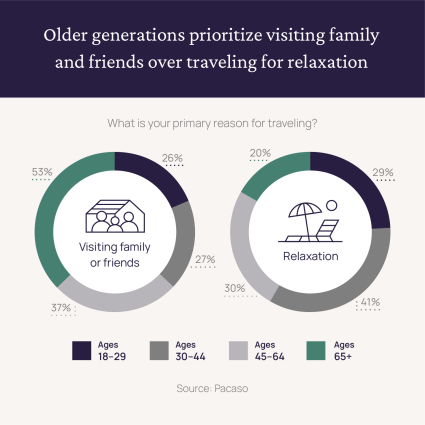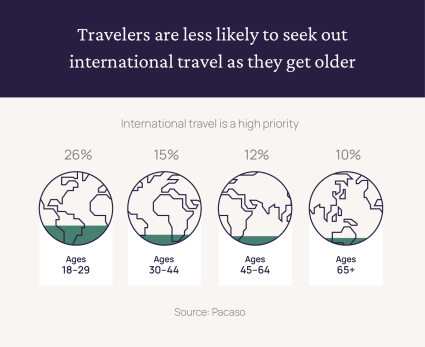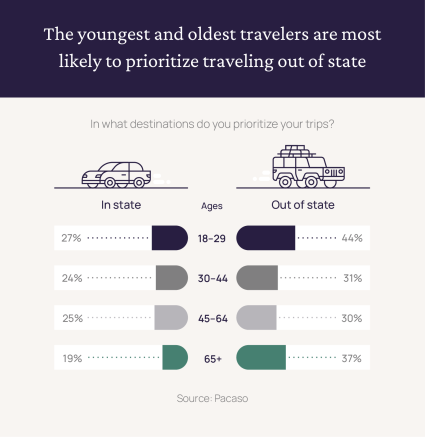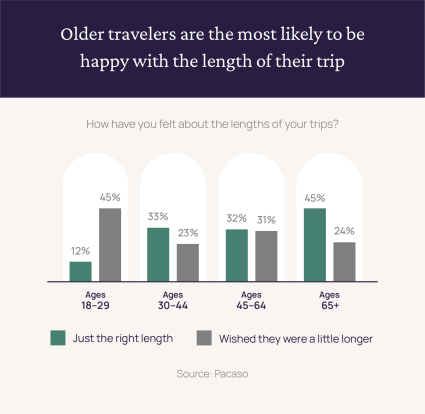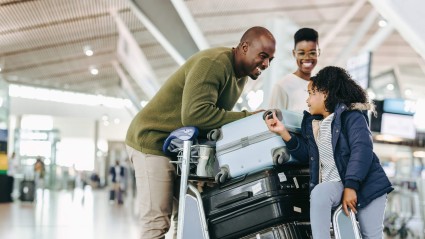How to buy a second home: A 7-step guide
Dreaming of buying a second home? Despite market shifts, it’s still within reach. Whether you’re seeking a mountain escape, a beach retreat or a cozy getaway, understanding the realities of purchasing a vacation property is key. Buying a second home can feel overwhelming — between higher costs, financing nuances, ongoing upkeep and limited time to enjoy the home. That’s why Let’s start with the seven steps of how to buy a second home: 1. Determining your second home budget involves assessing your current and future finances. Consider income, expenses and additional costs like taxes and maintenance, especially if you will be assuming a second mortgage. A It’s also important to think long-term. Will this home primarily serve as a personal getaway, a future retirement retreat, or a potential investment? Aligning your second home goals with your broader financial plan helps ensure the purchase supports your lifestyle, not strains it. Evaluate financing options and consult a financial advisor for insights into tax implications and investment alignment. This thorough analysis ensures that your second home purchase aligns with your financial goals. Second home expenses In addition to the purchase price, be sure to factor in these expenses when budgeting for a second home: Although second homes come with added expenses, they can also offer tax advantages that help offset costs. As you’re crunching the numbers, remember your second home can also be a source of rental income and tax breaks. Depending on how your second home is classified and used, you may be able to: These are great ways to make owning a second home more feasible. However, 2. Consider your financing options Lenders often see second homes as being at higher risk for loan repayment. For this reason, Here are some things to consider when financing a second home: It’s important to note that Buying a second home doesn’t have to be a solo endeavor. 3. Compare lenders When comparing second home lenders, it's essential to conduct a thorough evaluation to secure the best financing option tailored to your specific needs. Consider the following factors and use them as a basis for comparison: By comparing these factors among different lenders, you can make an informed decision that aligns with your financial goals and secures the most favorable mortgage terms. 4. Get pre-approved Getting pre-approved for a second home gives you a clear picture of what you can afford and strengthens your position when making an offer. Lenders will review your income, assets and debts to determine an approved loan amount. Consult multiple lenders to compare interest rates and terms. Keep in mind that because lenders may see 5. Find a location and a local agent Once you decide how to use your second home, you can hone in on the best second home locations. Ask yourself: Confirming your reason for owning a second home can help you decide on the perfect destination for your new vacation spot. Choosing the right agent Finding a knowledgeable agent in your target market can significantly decrease your workload in your second home search. You can use their local knowledge to help you with logistics and make an informed decision. Research local agents online, cross-reference reviews and ask for recommendations from your friends and family when possible. 6. Make an offer Buying a second home will be a familiar process if you’re already a homeowner: You make an offer, negotiate, come to an agreement and prepare for closing. Prior to closing, you will: Once your offer is accepted, it’s time to begin the closing process for your new second home. 7. Begin closing After the seller accepts your offer, the second home closing process begins. This process involves several crucial steps: Although closing on your second home may appear overwhelming, a smooth closing is key to turning your house purchase into a dreamy second home getaway. How do you know if you’re ready for a second home? When considering purchasing a second home, you'll want to evaluate your finances, lifestyle, and market conditions to determine whether it's the right time to purchase — but those factors are just the tip of the iceberg. Here are some of our team's top considerations for those considering a second place of residence. Down payments, interest rates and debt Assess your current financial situation to see if you can comfortably afford a If additional debt strains your financial resources, it may not be quite the Location and lifestyle fit Your vacation home’s location is everything. It affects your budget, lifestyle and resale appeal. Some areas have a higher cost of living or stricter zoning, while others may offer better access to amenities, outdoor recreation or year-round appeal. The ideal second home also aligns seamlessly with your lifestyle. Prioritize locations that support your hobbies and desired activities, guaranteeing a frequent and enjoyable retreat. If you like to ski, for example, a Investment or personal escape? When deciding on the main goal for your second home, it's crucial to determine if you're primarily interested in generating rental income, building long-term investment appreciation, or creating a personal retreat. Each of these objectives will significantly affect your approach to buying, managing, financing, and handling taxes for the property. Time investment Owning a second home comes with significant responsibilities. Are you prepared to manage the upkeep of two properties? This includes regular maintenance, potential repairs and the time and financial commitment of traveling between both homes. If not, are you willing and able to hire a property management company or other professionals to handle these tasks? Remember that delegating these responsibilities will add to the overall cost of owning a second home. Market timing Finally, when looking to take a big step forward in your second home journey, you'll want to look at the home market conditions. Many properties are available in a buyer's market, and buyers have more negotiating power. In a seller's market, high demand and low inventory give sellers the upper hand. Understanding the current market conditions will help you set realistic expectations, develop an effective negotiation strategy and help you determine if now is the right time to buy. How do I buy a second home with Pacaso? Now that you know how to buy a second home, it’s time to explore your options. If turnkey luxury and simplicity appeal to you, co-ownership with Pacaso offers a modern alternative to traditional second home ownership. If you’re unfamiliar with Here are 11 steps to follow if you’re wondering how to buy a second home with Pacaso. 1. Find a second home you love From there, you can explore each destination and the homes available within it, picturing what life could look like in every location. Each destination page brings the area to life, showcasing Pacaso homes through rich photography, detailed descriptions, and a true sense of how it feels to live there. Every Pacaso home is hand-selected and 2. Talk to us We’re excited to share all the details about our homes. If you’re not sure which one is best for your needs, we’ll go through each home’s unique attributes and location to help you decide. You can easily schedule a time to talk with one of our Crew members from any listing details page, or if you have general questions about co-ownership, you’re welcome to get in touch via our 3. Take a tour Touring is an important step in buying a vacation home. We’ll give you all the information we have about the home, but seeing is believing. While you’re on the call with our Crew member, they can arrange a time for you to tour the home. Buyers can schedule a virtual tour, an in-person tour, or 4. Say yes! You talked, you toured, you fell in love, and you’ve decided on owning a vacation home! We’ll walk you through the purchase process and paperwork, and our Crew will make sure you understand all the terminology related to co-ownership, such as: We want you to feel confident in the process, so ask as many questions as you’d like. Once you’re ready to proceed, you’ll reserve your share with a 10% deposit. 5. Secure second home financing If you’re interested in The approval process is straightforward and fast. Once all documents are provided — typically your most recent pay stub, bank statement and tax return — approval takes just a few days. You also have the option to pay all cash or take out a HELOC or personal line of credit through a lender of your choice. 6. Close on your new second home Your journey begins by reserving your share and signing the residential purchase agreement. You’ll submit a deposit equal to 10% of the share price, officially kicking off the closing process. From there, you’ll receive two sets of documents to review and sign. These include familiar items, such as the inspection report and seller disclosures, as well as Pacaso-specific agreements that outline how the home is managed and owned through our property LLC structure. If you choose to finance a portion of your purchase, our team will work with you to collect the required financial information and keep things moving smoothly. As closing approaches, we’ll schedule a check-in call to review your final closing statement, confirm wire instructions for the remaining funds, and verify that everything is in place, including your first stay date. Once the transaction is complete, congratulations are in order: you’re officially a Pacaso owner. After closing, you’ll transition into onboarding, where you’ll meet your Home Manager, download the Pacaso app, and start booking stays. From there, all that’s left to do is settle in and enjoy your new second home. 7. Get ready for vacation home bliss Congratulations on owning a vacation home with Pacaso! Our commitment to owners doesn’t end at closing. We assign a 8. Book your stays You can begin 9. Experience the ease of fully managed ownership One of the best things about buying a vacation home? It’s all yours! One of the worst things? It’s all your responsibility. The hassles of vacation home ownership can take a lot of joy out of the experience. Pacaso’s fully managed co-ownership model gives you the benefits of vacation home ownership without all the headaches. We take care of maintenance, repairs and cleaning; manage payments for utilities, insurance and taxes; oversee 10. Flex your ownership muscles Pacaso’s management services are designed to make your ownership experience easier — but that doesn’t mean you don’t have a voice. In fact, you and your property’s co-owners have 100% ownership of the property once all shares are sold, which means your co-ownership group has decision-making authority. Here’s how this works in practice: Owners can bring major issues about their property to a vote of the co-ownership group, and every share owned holds one vote. A major issue might be a costly property upgrade, like the installation of a hot tub. To call for a vote, you would get in touch with your home management team. Routine maintenance and necessary repairs (such as replacing a broken dishwasher) are handled by Pacaso and do not require a vote. 11. Feel confident if it’s time to move on We think you’ll love your Pacaso for years to come, but life evolves, and your ownership can evolve with it. If your needs change, you’re free to Why is buying a second home with Pacaso the smart choice? At Pacaso, our goal is to make second-home ownership simpler, more enjoyable, and more attainable — without ever compromising on quality, control, or confidence. From luxury homes in premier destinations to Whether you’re just beginning to explore or ready to take the next step,
Read